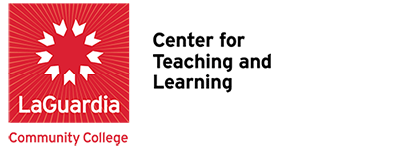 June 16, 2020
June 16, 2020
Judith Nell Foster
I must begin with a poem that keeps returning to mind, one that I traditionally tack up on my refrigerator at Christmas when the end of the Fall semester butts up against Christmas preparations; I could welcome a little Christmas madness right about now. The poem is Robert Frost’s “The Armful.”
The Armful
For every parcel I stoop down to seize
I lose some other off my arms and knees,
And the whole pile is slipping, bottles, buns –
Extremes too hard to comprehend at once,
Yet nothing I should care to leave behind.
With all I have to hold with, hand and mind
And heart, if need be, I will do my best
To keep their building balanced at my breast.
I crouch down to prevent them as they fall;
Then sit down in the middle of them all.
I had to drop the armful in the middle of the road
And try to stack them in a better load.
I am grateful for Frost’s words in my head and to LaGuardia’s English Department for allowing me to let things be not at their best this semester. On the last day I met with students on campus, I told them to “look in Blackboard.” I had no idea what I was talking about, but I had a feeling I wasn’t going to see them again. It was a desperate move.
The next day, I went to a department meeting to find out what the plan was. We sat together in a room, rather like sardines in a can—the six feet of distance rule had not yet become stated protocol—and I listened to a lot of good advice in a language I couldn’t follow. I felt lost, certain of failure. At the very end of the meeting, Dominique Zino smiled at me and asked if I was okay. I smiled back and said, “The only thing I know how to do is send email.” “You could make that work,” she said, and then Dominique patiently showed me how to get into Blackboard, find and open my classes, where to put announcements and content, and how to send emails to all students in C2C.
I went home and repeated her instructions; it is the only way I can learn new digital technology. I need someone to slowly show me a few moves that I can write down and repeat on my own with no one watching. Thank you, Dominique. I tried looking at some online tutorials, but I could not take in the information. I couldn’t clearly see where to go, what to press where; I did not understand the language of remote learning. “I had to drop the armful” and return to the few words I remembered Dominique saying and repeat them again and again. I thought, “Well, later I can add this or that, maybe, but not now.”
At that point, I simply posted announcements and content in Blackboard and received work from students in attachments to email. That first night I emptied out my Outlook inbox, and continued deleting almost everything throughout the semester except my students’ emails. I am sure there is a better way, but it would be lost on me in this “middle of the road” circumstance I’m in at the moment; learning it can wait.
I have received a lot of work from a core few in each class, a reasonable amount from some more, promises of something from most of the rest. Only two in each class have officially dropped and only one did not contact me. I consider that good. The one certain thing I can say is that when I read and respond to my students I feel good, my mind is clear and focused, and I love doing it. I feel connected to my students, and much of what I am reading is some of the best I’ve ever read from students. I think they feel connected to me; they express concern for my well-being.
Two of my students have lost their mothers to COVID-19, and this morning one sent me a photograph, taken three weeks before her mother died, of herself, her son, mother, father, and dog standing before a birthday cake. My student had promised her mother that she would finish school, and she was ready to get back to concentrating on school work. I am sure all of us know it is a great privilege to help our students achieve their goals, never more than now. I feel so lucky to be in this business.
As if picking up the trail of my thoughts, a student who had not previously reached out sent an email. She had felt lost and confused about everything, but because my Blackboard announcements kept encouraging students to stick with it, she decided it was time to try. I truly believe the place we provide in our distanced classrooms can offer students space to step away from the confusion and distress of this crisis. This has been so for me, and the feedback I get from many students tells me they feel heard and not alone.
In the end, I don’t think it matters if my student can get everything done; she’ll do something, and I hope that will help her to know she can keep moving forward. “Moving forward” has always been a goal to shoot for in education, never more important than in the moment we are living in. We have always asserted that making classrooms a safe space is a prerequisite for learning; if anyone needed proof, our experiences in this time surely provide the evidence.
As to the wider world, I take it a day at a time, sometimes with confidence that “this too shall pass,” and it should, sometimes with dread because I don’t know what’s next. I think often about something M.F.K. Fisher wrote in How to Cook a Wolf in 1942 when Americans who had just gone through the depression were facing shortages and rationing in WWII. At the end of the chapter, “How to Keep Alive,” Fisher writes: “and to all of us I shall say, with wise Aesop, ‘You have put your head inside a wolf’s mouth and taken it out again in safety. That ought to be reward enough for you.’
Gratitude is a righteous expression of just how precious life is, and everyone who survives should feel it in their bones. But is it enough? I used to think so. Not anymore. For me, the events of the past few months have brought into sharp focus our need to learn the righteous actions required of grateful survivors if we are to make life on this planet more just, equal, and healthy in the future. LaGuardia Community College—because it is a community college—is just the place for this kind of learning to go on. I am very grateful to be working here.


